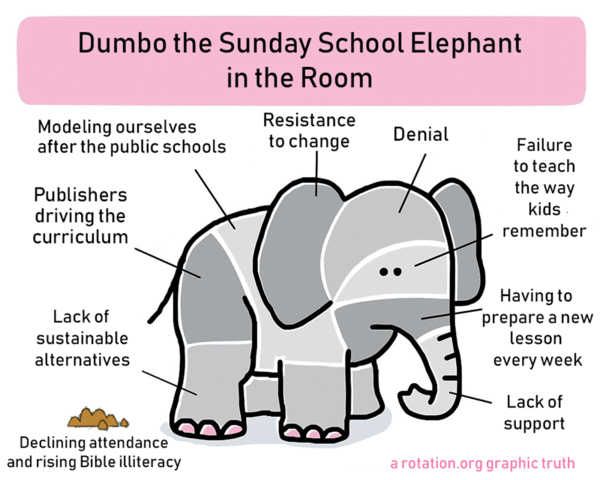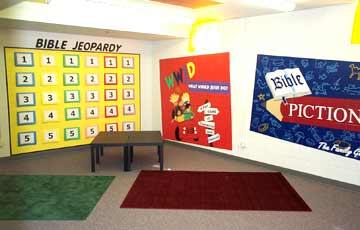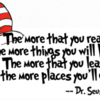Draft version 3.1 posted 2/15/19, with minor updates made 7/2021 and 9/2022
A much earlier version of this article first appeared at my software website in the early 2000's and was linked to here at Rotation.org. Its original content featured "what every 3rd and 6th grader should know about the Bible" and was often copied, quoted, and debated.  I've since substantially improved it and posted it below in this topic. I've also added some additional comments about "how to evaluate in Sunday School" at the end of this article.
I've since substantially improved it and posted it below in this topic. I've also added some additional comments about "how to evaluate in Sunday School" at the end of this article.
I don't expect you to agree with everything I'm going to say here, but I do expect you'll want to wrestle with these important issues and act on your conclusions in your own ministry. -Neil
Evaluating our Sunday School Kids & Teaching
and "What Every Child Should Know About the Bible"
(and when should they know it?)
by Neil MacQueen
This article several related subjects, including:
♦ The need to evaluate (test) what our kids know and don't know
about what we've been teaching them (and how to do it)
♦ The importance of Bible literacy.
♦ And some Bible literacy goals .
(What every 3rd and 6th grader in our Sunday Schools should know).
"Prove me O Lord and test me"
Psalm 26:2
"Test everything; hold fast to what is good."
1 Thessalonians 5:21
"We cannot aspire toward God
till we have begun to be displeased with ourselves."
John Calvin, Institutes on the Christian Religion, Book I Chapter 1.1

Judging the effectiveness of our Sunday School TEACHING can be a "displeasing" subject. But we cannot aspire to better Sunday School and improved Bible literacy without asking questions of ourselves and our kids.
Thankfully, Sunday School is not the be-all, end-all. Many children have stayed members of the church and matured in their faith, or have left the church and come back, in spite of having a good or bad Sunday School experience. I, for one, hated Sunday School as a child and tried to avoid going as much as possible (and look where it got me). I absorbed a lot, though, especially as a teen and in my college years in my church. The teachers I encountered left an impression on me that told me I had to make up for my lack of early immersion in Bible stories. I realize, however, that I was the exception --that most of my peers were leaving church and faith life as I was coming back into it.
Whether you too came back or never left, the fact that you're reading this tells me that you too feel the call to examine and improve what should have been a wonderful formative AND EDUCATIONAL experience for children over the past decades, but seems to have failed the church and those kids if the statistics are to be believed. (I've put a few stats down below. If you need further proof, you are part of the problem.)
To be clear, this article isn't about attendance. It's about how well we are teaching those who DO attend.
Through many efforts, I've made it my ministry to discover and create the kind of Sunday School that my friends and I would have loved going to -- and might have kept them connected and growing in their faith. (See my work at rotation.org and sundaysoftware.com for those specifics.) I was the exception to the usual rule. I came back. Some of you never left. Together we are the "faithful remnant" and that is nothing to be proud of.
This article is focused on the question of the Bible literacy we hoped all those lessons, time, effort, and money would produce -- and didn't, and what we now can do to make things better. The obvious holistic answer is "many things," but this article is just about "evaluating" what our existing programs have been doing. I have no illusions that anything we do will be anywhere near 100% effective. But surely we can learn to move the needle upwards -- given the fact that we figured out how to move it down.
To the point:
- Are our students learning what we are teaching? ...i.e. remembering and understanding it over the long term?
- How do we measure what our kids know and don't know?
- What should they know and at what age should they know it!
Serious educators want to know the answers to these questions --because they are teachers at heart, not babysitters or administrators. Sunday School is a huge waste of time, effort and money if we can't or won't quantify what we think is working and what is not working.

The answer to the first question is simple: we need to "test"* them in various ways and over time.**
- But what should we be testing for?***
- Who and when should we test?
- How should we test?
- How should the test results be handled?
- And who is the test really for?
* I'm not proposing 'grading our students,' 'pencils down' or 'making them sweat.' My definition of 'testing' is this: activities that produce some form of quantifiable results that tell us what our student know and don't know about the content we think we have been teaching them. Gotta warn you, however, it can be a sobering epiphany.
**Over-time means not just once in a blue moon or a couple of questions at the end of the lesson. Our memories don't work that way. We need to reinforce in the short-term, and refresh memories over the long term.
***This question is not about "relationships" or "how faith works." It is simply about the BIBLE CONTENT we spend so much time and effort trying to pass along.
The underlying premise: Bible Literacy is an important feature of a person's Biblical faith.
Simply put, if you don't know the stories of Jesus, then the odds of you following Jesus are slim. I should have put the following section ahead of the one above it, but decided to put my "point" closer to the top for skim readers.
The following facts are the tip of the iceberg.
A few facts for the recalcitrant sinners among us...
According to a Gallup poll, only three out of five Christians can recall the names of the first four books of the New Testament! Only half of the Christians polled correctly identified the person who delivered the Sermon on the Mount. And a full 42% of the Christians said that without the government's laws, there would be no real guidelines for people to follow in daily life.

According to the Search Institute's National Study on Christian Education (1992), Bible literacy is an excellent indicator of future faith maturation. Yet, the last 50 years of Sunday School have produced huge numbers of Christians who do NOT know their Bible and no longer go to church. Coincidence? Statistics also show that most Christians have their mind made up about Jesus and church participation by the age of 12. This means that Sunday School -- which has been the primary formative church experience for children for the last 50 years, has failed millions of Christian children in the U.S. The stats, btw, also show surprising levels of "spirituality" among those who have left the church.
(Yes, I can say "their parents failed them too," but we're talking here about the kids who DID or DO come to our classes, not the ones who don't. In another article, I will talk about how we can appeal to those who have stopped coming, but for now, we're focused on testing the quality of our teaching to the ones who DO come and we don't want to see leave biblically illiterate.

Bible Literacy faces a "structural" problem in "traditional" Sunday School.
That structural problem is curriculum that changes the story every week as if every kid is there every week, and as if one 40 minute class is enough to remember a Bible story they won't hear for another five years or more.
Traditional publishers and denominations failed to see this structural problem as they pushed lesson plans that kept pace with the preacher's lectionary. The result? 40 years of kids not knowing their Bible and leaving the church. Yes, it was assisted by lots of other factors, and we need to address those too, but you have to start somewhere, so why not with the elephant in the (class) room?
The Model for Sunday School which I have been involved with, The Workshop Rotation Model, was created to CHANGE those structural problems. Instead of one week on the Prodigal Son, the typical Rotation Sunday School will spend four. Kids who are there each week get it in-depth and through a different learning medium each week. Repetition is hard to beat and it's easy when each week uses a different fun teaching medium. (You can also slip quizzes into those fun lessons.)
The Rotation Model embraces two important goals: Bible literacy and happy campers. We need each to achieve the other. But in too many churches past and present, it's been about one or the other, "drilling and killing" or "light and fluffy." Neither of which floats this Presbyterian's boat.
When done well, the Workshop Rotation Model achieves better Bible literacy. How do I know? Because I have tested students for YEARS in many churches where we have used the Model --though none of them probably realized we were doing it. My kind of testing just looked like fun to them.

The ability to "test" my kids and find out what I needed to teach better was actually what got me exciting about incorporating computers in the Rotation Model so many years ago. I could put a Bible quiz on a piece of paper and the kids would groan. Put that same quiz on a computer screen and the kids would compare results!
It also taught me the value of going back over previously taught content, and doing so using a variety of teaching methods and mediums so that it didn't feel like "review" (which kids don't really like).
Why did we EVER think that teaching a new story every week was the right idea? Seems idiotic to me now. (If I was in curriculum sales, however, the need for all that printed weekly and graded curriculum would seem like a great idea!) Of course, any of the workshops can have "fun quizzing" in them. But to MAKE SURE it was a priority in the Rotation Model, we created the "Bible Skills and Games Workshop" to enshrine it structurally in every story rotation. Yes, the "Bible Games Workshop" is really a front for reviewing and quizzing.

Repetition works because that's the way our brain works --whether you're learning to shoot a basketball, or learning your ABC's, or learning Algebra, or trying to remember the story of the Prodigal Son or how Jesus died on the cross.
Repetition is the cornerstone of learning.
Repetition is the key to all types of literacy.
Testing what they know is the only way to know for sure if our methods are working.
Repetition + Testing* = The path to Bible literacy.
*Testing = intentionally measuring what's supposed to be in their brains by virtue of our fabulous teaching and our student's wonderful brain cells.
And the great side-effect of testing is that it promotes long-term recall. Pinch me!
So what should we "test" or measure?
I found this excellent description at Lutheran Bible Ministries' website some years ago and have adapted it a bit for our purposes.
There are at least three levels of Bible knowledge:
1) Knowledge: The foundation of biblical literacy is factual knowledge - knowing the people, places, events and main stories of the Bible.
2) Belief: A second and higher level of biblical literacy is that of "assent" -- meaning: accepting this knowledge is an important guide to me, i.e. that we should learn and remember it because it is God's Word. We hear God's Call.
3) Life Chaning Commitment and Life Application: The third and highest level of biblical "literacy" is being inspired by God's Word to personally follow it. This is the ultimate goal of Bible literacy -- hearing God's call and being moved to respond.
I love that this definition stresses literacy as "more than just the facts." But the basic facts are still the first level we should be testing for -- what are the Bible's big stories? What is the Bible's overarching them and message? Who are some of the most important characters? When were these stories written? Having a working knowledge of "where in the Bible can I find....?" These are more important "big" understandings than mere Bible trivia.
The second level of literacy, "Assent," is more challenging, especially with untrained teachers and lesson plans that don't get around to asking students to accept, internalize, and express what the message means to them. We hope "assent" is happening, but often this level of personal application and reflection is left to the end of the lesson when there's little time left. Instead, we've let our lesson plan be consumed with "information and activity" rather than life application and transformation." (See my article on how to move from "Information to Transformation" in a lesson.) Let's also keep in mind that "Assent" happens outside the classroom when student acts on the Good Sam parable in their life by sitting with an "outcast" student in the lunchroom, etc., or remembering to pray in their "closet" like Jesus said to in the lesson.
Level 3's "Life Changing Commitment" sounds like an altar call, and call it what you want, but there is an undeniable element to faith maturation that happens when your name is called and you are asked to say what you believe, not just believe it. And it's never one event (like Confirmation), it's usually a collection of events, people, mentors, opportunities, and stresses (yes, trouble) that bring us to the point where belief becomes faith in a present God.
Is there more to say about these three kinds of Bible literacy? Yes. Please continue to explore them!
Read the next post in this topic for more on what we should teaching and testing for!














